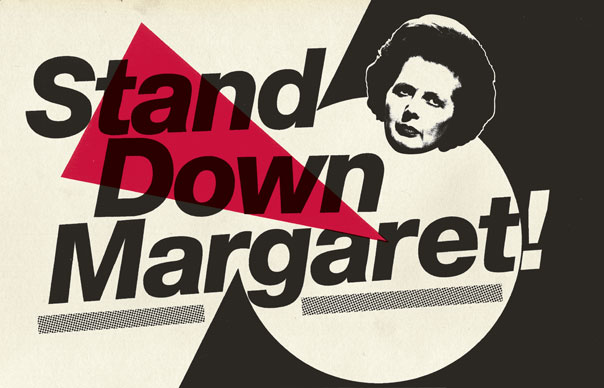For some, the escapist tone of 80s pop started to chime with Thatcherism. Some started to take up the entrepreneurial spirit that Thatcher came to embody, be it the Happy Mondays or Soul II Soul. “We were children of Thatcher,” says Soul II Soul’s Jazzie B. “And, for us, Thatcher legitimised a lot of things. In the old days, Arthur Daley figures were seen as rogues. But they became respectable, and so did we. The kind of parties that might have been illegal in the old days were now legitimate.”
Some budding musicians, DJs and label bosses took advantage of Thatcher’s business initiatives. “I wonder how many lefties like myself,” said Tony Wilson in 2000, “look back now with misty eyes on the Enterprise Allowance Scheme, that great nurturer of the young.” The scheme paid claimants a supplement on top of their weekly dole money to assist a business start up, providing they also put in £1,000 of their own money as capital. Although the scheme was eventually abandoned after creating thousands of short-lived business failures, it managed to assist fledgling labels like Warp, Creation and Domino.
If much of Thatcher’s legacy came in the form of union “reform” – clamping down on industrial action and breaking the closed shop – the Musicians Union provides an interesting case in point. Throughout the 1960s and Seventies, the MU had earned a reputation for failing to embrace the changes brought about by recorded pop music and the promotional video, drawing up agreements with government and broadcasters that now seem like archaic “Spanish practices”.
“I’m a big supporter of the Musicians Union,” says Jerry Dammers. “But there were some daft, Luddite regulations that continued until the 1980s. They had a downer on synthesizers, for instance, believing they put string players out of work! Also, when you mimed on Top Of The Pops, unions demanded that you had to re-record the track, to ensure that no musicians were put out of work. Of course, no one ever, ever re-recorded their tracks! They just had to book a studio, in case they got investigated by a union official, and sat in their drinking tea and watching TV. Then they’d go on TV and mime to their record. It became a huge racket.”
Other MU regulations were abolished under Thatcher, including a joint “exchange scheme” with the American musicians unions. “It was a logistical nightmare,” says music promoter John Cumming. “If you wanted an American act to play in Britain, you had to ensure that an equivalent number of British musicians were playing an equivalent number of ‘man days’ in the US. There was a ridiculous degree of horse-trading involved. If there’s one positive thing that Thatcher’s government did, it was getting rid of that.”
Other fears about trade union intransigence crept into the pop world, as Dave Wakeling recalls. “We were at No 4 in the charts with ‘Mirror In The Bathroom’ and we were going to do Top Of The Pops. We got there, and found out there was some industrial dispute with the cameramen or something. We were almost in tears, pleading with them. ‘Can’t you see – if we do TOTP we could be No 1 next week! It’s what we’ve dreamed about since we were kids!’ There was a lot of anti-union feeling in the band after that, which you could say was a little ironic.”



